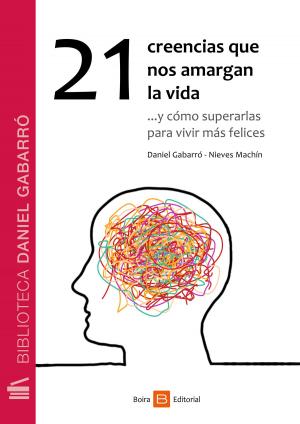Ego
The Fall of the Twin Towers and the Rise of an Enlightened Humanity
Nonfiction, Health & Well Being, Self Help, Self Improvement| Author: | Peter Baumann, Michael W. Taft | ISBN: | 9781604076561 |
| Publisher: | NE Press | Publication: | September 1, 2011 |
| Imprint: | NE Press | Language: | English |
| Author: | Peter Baumann, Michael W. Taft |
| ISBN: | 9781604076561 |
| Publisher: | NE Press |
| Publication: | September 1, 2011 |
| Imprint: | NE Press |
| Language: | English |
Ego: The Fall of the Twin Towers and the Rise of an Enlightened Humanity by Peter Baumann and Michael W. Taft is the first book to explore the positive evolutionary potential hidden in one of the most destructive events in history. In their examination of the evolutionary implications of 9/11 and its aftermath, the authors contend we are not falling into the grip of a new dark age at all; rather, we are on the verge of a much brighter one as the Darwinian process of natural selection continues to advance humankind.
The authors’ inquiry led them to the roots of human suffering: the ego. That the ego underlies our problems as a species may come as no surprise. But a deeper look into the ego’s origin and history is full of unexpected revelations:
- The modern human is dominated by a Stone Age brain
- Energy consumption and the environmental crisis is nothing more than the evolutionary drive to survive gone haywire
- Evolution has wired us to be riveted to bad news, bad outcomes, and worst-case scenarios
- When beliefs are challenged it triggers a life or death stance in the human nervous system
- Emotions are mostly physical, not mental
The self we identify with—along with its biases and beliefs—turns out to be an evolutionary tool that made its first appearance some 50,000 years ago during what’s called the conceptual revolution, arguably the biggest developmental leap in human history. The emerging ego accompanied our ability to construct complex tools, create art, and redefine social structure. For the first time as a species, we were able to imagine the future, consider the thoughts of others, and picture ourselves in our own minds. The ego is a cognitive trick of natural selection intended to insure the survival of the individual. Baumann and Taft say the problem comes when we take the ego’s conceptualization of reality as the truth about who we actually are.
Using the latest research from neuroscience, evolutionary biology, psychology, and paleontology, Baumann and Taft show that modern humanity may be on the verge of an expansion of cognitive abilities akin to the development of the ego. This next step will free the human mind to see beyond the confines of the prison, and open the vast potential of conscious awareness.
Ego: The Fall of the Twin Towers and the Rise of an Enlightened Humanity by Peter Baumann and Michael W. Taft is the first book to explore the positive evolutionary potential hidden in one of the most destructive events in history. In their examination of the evolutionary implications of 9/11 and its aftermath, the authors contend we are not falling into the grip of a new dark age at all; rather, we are on the verge of a much brighter one as the Darwinian process of natural selection continues to advance humankind.
The authors’ inquiry led them to the roots of human suffering: the ego. That the ego underlies our problems as a species may come as no surprise. But a deeper look into the ego’s origin and history is full of unexpected revelations:
- The modern human is dominated by a Stone Age brain
- Energy consumption and the environmental crisis is nothing more than the evolutionary drive to survive gone haywire
- Evolution has wired us to be riveted to bad news, bad outcomes, and worst-case scenarios
- When beliefs are challenged it triggers a life or death stance in the human nervous system
- Emotions are mostly physical, not mental
The self we identify with—along with its biases and beliefs—turns out to be an evolutionary tool that made its first appearance some 50,000 years ago during what’s called the conceptual revolution, arguably the biggest developmental leap in human history. The emerging ego accompanied our ability to construct complex tools, create art, and redefine social structure. For the first time as a species, we were able to imagine the future, consider the thoughts of others, and picture ourselves in our own minds. The ego is a cognitive trick of natural selection intended to insure the survival of the individual. Baumann and Taft say the problem comes when we take the ego’s conceptualization of reality as the truth about who we actually are.
Using the latest research from neuroscience, evolutionary biology, psychology, and paleontology, Baumann and Taft show that modern humanity may be on the verge of an expansion of cognitive abilities akin to the development of the ego. This next step will free the human mind to see beyond the confines of the prison, and open the vast potential of conscious awareness.















